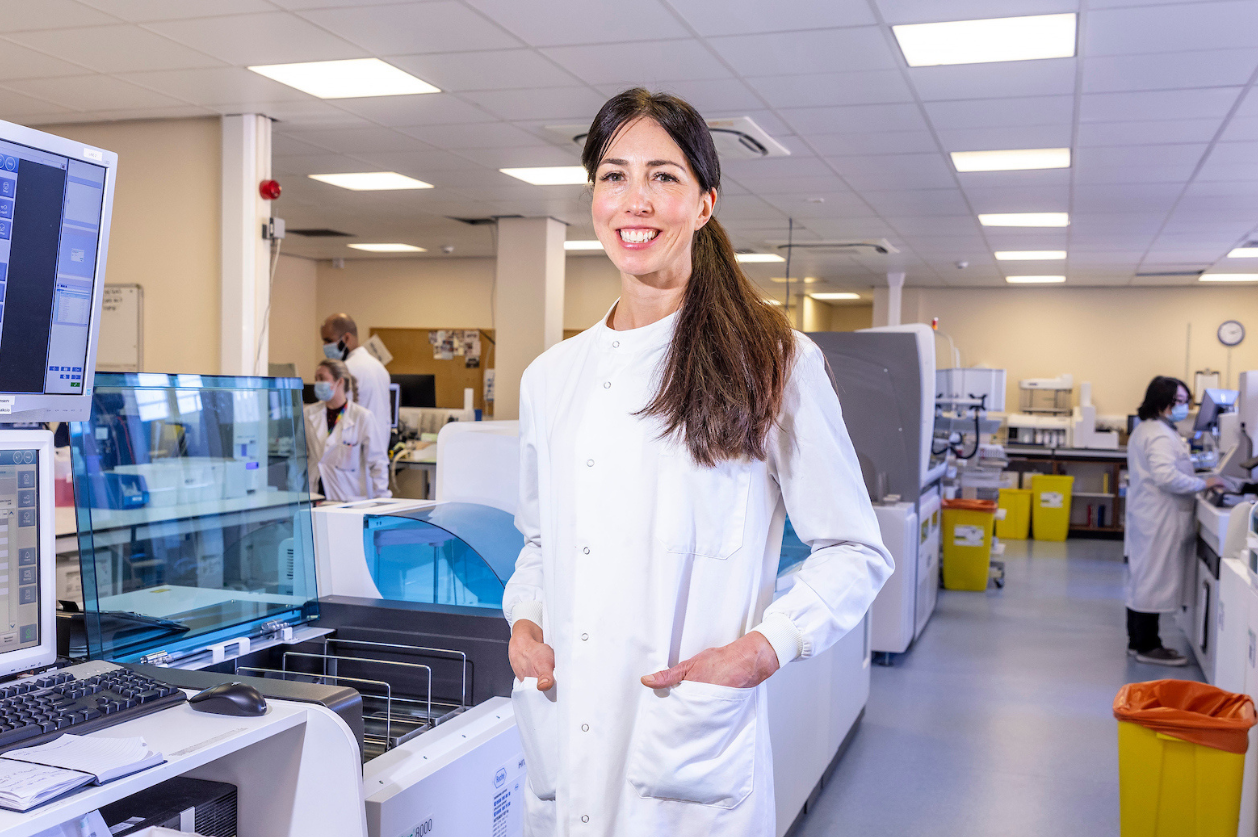Previous
Associate practitioner - life sciences
To become a biomedical scientist in the NHS, you’ll need an undergraduate honours degree in Biomedical Science. The degree programme must be accredited by the Institute of Biomedical Science (IBMS).
Biomedical scientists normally work in laboratories, using computers and complex lab equipment to conduct a wide range of scientific tests. These tests help doctors and other healthcare professionals diagnose, monitor, and manage diseases. Biomedical scientists can also carry out tests for blood transfusion.
Generally, biomedical scientists specialise in one of four areas:
Operating theatres and accident and emergency wouldn’t be able to function without biomedical scientists. Their work is vital to the detection and investigation of medical conditions.

To get on a college or university course that could lead to a career as a biomedical scientist, useful subjects include:
Speak to your guidance teacher or careers adviser about subjects offered at your school.

You may find it helpful to get some healthcare experience by doing a work placement or volunteering. You’ll get training, increase your knowledge, and learn new skills. This could help you when applying to university, college or a new job with NHSScotland.
At college, you could do an HNC or HND to set you on the right path. These include:
You can search for college courses on My World of Work.
To work as a registered biomedical scientist in the NHS, you must complete an undergraduate honours degree in Biomedical Science at SCQF level 10. The degree programme must be accredited by the Institute of Biomedical Science (IBMS) or the Health and Care Professions Council (HCPC).
If the IBMS-accredited degree programme is integrated with a laboratory placement, you'll complete your IBMS Registration Training portfolio during your placement year. You can then apply for registration with the HCPC. This means you’ll be a registered biomedical scientist when you graduate.
Some scientific degree programmes are accredited by the IBMS but don’t have a laboratory placement. In that case, you’ll need to complete an IBMS Registration Portfolio in an approved laboratory after you graduate to become a biomedical scientist.
The IBMS Registration Training Portfolio Certificate of Competence is a work-based professional qualification. It must be carried out in an approved clinical laboratory. The qualification demonstrates evidence of your competence to meet the HCPC Standards of Proficiency.
If you decide to take a scientific degree that isn’t accredited by the IBMS, you can apply for a role in an NHS laboratory as an associate practitioner in life sciences. Once you’re in this role, you can have your degree transcripts assessed by the Institute of Biomedical Science to find out which supplementary modules you'll need to take at an accredited university.
Once you’ve completed these courses, you can apply for a trainee biomedical scientist role and complete your registration portfolio.
Widening participation supports adult learners who want to go to university. If you’re an adult with few or no qualifications, you could get into higher education through the Scottish Wider Access Programme (SWAP). Many universities also provide access programmes to help you get the degree entry qualifications you need.
To work in any NHSScotland laboratory, you must apply to Disclosure Scotland to join the Protecting Vulnerable Groups (PVG) scheme.
You'll work in laboratories conducting complex tests to investigate medical conditions such as:
To help diagnose patients, you'll use:
You'll also investigate samples taken during health tests, surgery and blood donation services. You must carefully record your experiment results while assisting doctors and healthcare science staff.
Tasks include:
You may be involved in new research or providing support to other healthcare science staff.
You'll need these skills:
Biomedical scientists work with other healthcare professionals, including:
You'll mostly be working in a hospital laboratory.
As a biomedical scientist, you’re expected to undertake continuing professional development (CPD). This will keep your knowledge and skills up to date. You must also do this work to maintain your registration with the HCPC.
After registering with the HCPC, you can continue your professional development by taking the IBMS Specialist Diploma. The Diploma is offered in a range of disciplines:
You’ll need to provide evidence of training, specialist knowledge and practical skills via a portfolio.
With the right combination of experience and advanced knowledge, you may be able to become a registered scientist (RSci) or chartered scientist (CSsi). Advanced Biomedical Scientists can also apply to the HCPC as a clinical scientist. The IBMS provide a route following the award of the IBMS Certificate of Attainment. (Experimental Route).
As your career progresses, there are opportunities to take IBMS higher and expert qualifications. These will help you move into management and advanced practice, where you might lead your own team or control a budget. You could also become a consultant biomedical scientist.
With the right experience and knowledge, you may focus on more specialist areas such as:
Later, you could take advanced IBMS qualifications suitable for advancing practitioner roles. These qualifications demonstrate a high level of expert knowledge and skills within a discipline and could provide a link to professional doctorate programmes.
The Advanced Specialist Diploma is aimed at senior members of the profession who can take on roles supporting medical consultants. The diploma is available in specialties including:
If you decide to take a MSc or PhD in Biomedical Science or another relevant subject, you could move into teaching.
Some biomedical scientists also undertake clinical academic research.
To work as a biomedical scientist in NHSScotland, you must maintain your registration every 2 years with Health and Care Professions Council (HCPC).
You can also register to join professional bodies, such as:

Discover the range of healthcare science careers you can choose in the NHS.
Healthcare science
Our blog includes how-to guides, case studies, and career resources.
Discover more